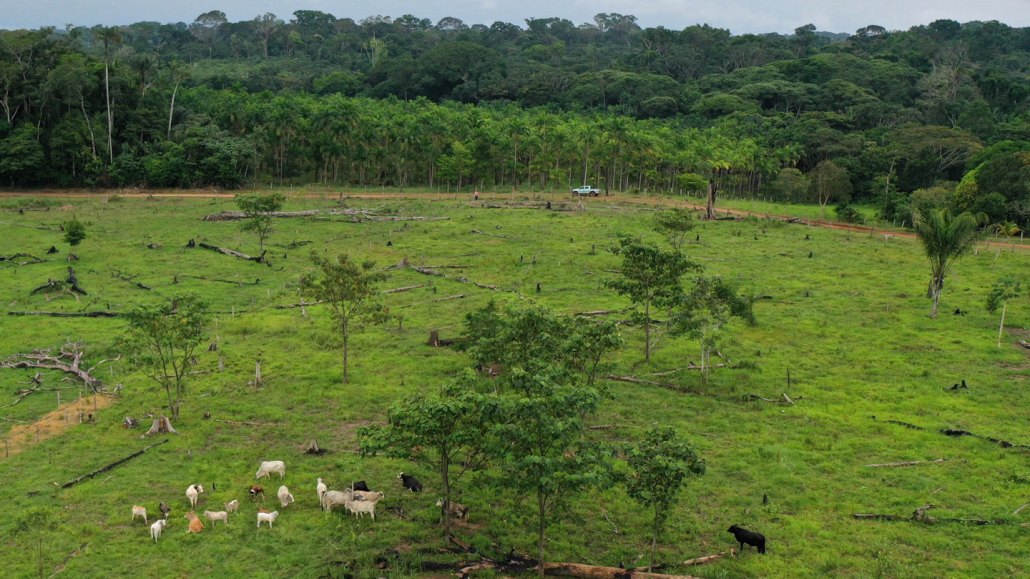
This parcel of Amazon rainforest in Colombia has been cleared to provide room for cows to graze. Swapping some of the meat in our diet for microbial protein could reduce deforestation, a new study suggests.
RAUL ARBOLEDA/AFP/Getty Images

This parcel of Amazon rainforest in Colombia has been cleared to provide room for cows to graze. Swapping some of the meat in our diet for microbial protein could reduce deforestation, a new study suggests.
RAUL ARBOLEDA/AFP/Getty Images